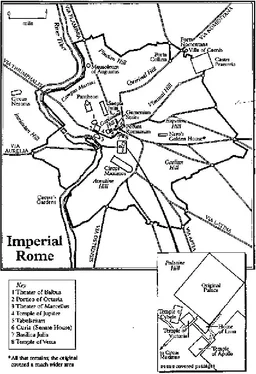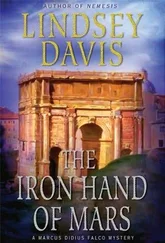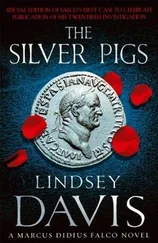Lindsey Davis - The course of Honor
Здесь есть возможность читать онлайн «Lindsey Davis - The course of Honor» весь текст электронной книги совершенно бесплатно (целиком полную версию без сокращений). В некоторых случаях можно слушать аудио, скачать через торрент в формате fb2 и присутствует краткое содержание. Жанр: История, на английском языке. Описание произведения, (предисловие) а так же отзывы посетителей доступны на портале библиотеки ЛибКат.
- Название:The course of Honor
- Автор:
- Жанр:
- Год:неизвестен
- ISBN:нет данных
- Рейтинг книги:5 / 5. Голосов: 1
-
Избранное:Добавить в избранное
- Отзывы:
-
Ваша оценка:
- 100
- 1
- 2
- 3
- 4
- 5
The course of Honor: краткое содержание, описание и аннотация
Предлагаем к чтению аннотацию, описание, краткое содержание или предисловие (зависит от того, что написал сам автор книги «The course of Honor»). Если вы не нашли необходимую информацию о книге — напишите в комментариях, мы постараемся отыскать её.
The course of Honor — читать онлайн бесплатно полную книгу (весь текст) целиком
Ниже представлен текст книги, разбитый по страницам. Система сохранения места последней прочитанной страницы, позволяет с удобством читать онлайн бесплатно книгу «The course of Honor», без необходимости каждый раз заново искать на чём Вы остановились. Поставьте закладку, и сможете в любой момент перейти на страницу, на которой закончили чтение.
Интервал:
Закладка:
Then he looked up.
* * *
Caenis realized the world was very sad.
She supposed he saw a balcony like all the others he had passed, crammed with vulgar people screeching and waving stupid hats. She could tell at once that he had noticed her, standing silent at the front, for his face automatically cleared. A woman in a white dress. He used to say white made her seem invisible; he liked her best in blue.
It was six years since Caligula was assassinated by Chaerea. The man below had spent a year and a half in Germany while Narcissus organized the landing force, then nearly four in Britain, and almost twelve months handing over the Second to his successor, before making his way back to Rome. He would be thirty-eight on 17 November. Caenis was—whatever age she was. She had a fair idea: the same as he. Even a little older perhaps. Yet she looked down at Vespasian with a clear, unashamed gaze, for she kept the comfortable habit of still thinking herself a girl, standing at the eager threshold of life. (Sometimes Caenis made herself wonder how long this habit could go on.)
Everything passes.
Feeling nothing so much as mournful regret, Caenis could see that Vespasian felt touched by a similar moment himself. He looked thoughtful, and a little melancholy.
He had everything now. It would be easy to feel jealous—yet so much less tiring at her age to be conventionally tolerant instead! She had always known he would be famous. She had once asked him to remember her, when he was. It did not seem important anymore. Yet she knew he did remember. The quiet recollection flickered in his face; she permitted a pale acknowledgment to answer in her own. She was glad that she had known the man, glad too that she had seen him come to this.
Old friends. Two people who knew nothing now of each other's lives, nor ever would, nor even wanted to. Two people merely happy, amid a clamor that was disturbing to them both, to recognize some stillness and calm in an old familiar face.
He was still looking up.
"Do something!" squeaked Veronica. Then in horror, "Caenis, don't do that !" Caenis had something from the picnic ready at hand.
His face lit.
"Caenis—no!"
Vespasian, expectant, lifted his chin. Caenis leaned out, held his eye for a second and a half, then lobbed her gift. "Io Vespasiane!"
She had thrown it straight at him; he trapped it against his brilliant armor with one wrist. It was half a Lucanian salami. Veronica collapsed.
Somebody pulled Caenis back before she fell. Laughing, laughing with him, she struggled to keep to her feet so she could see.
The procession jerked. The chariot moved. The crowd were acclaiming him; his business was with the crowd.
"Io Vespasiane! Triumphe Io!"
After him his officers stiffly marched past. Then after them the whole street became dappled with the reflected light that flashed off the armor of Vespasian's marching troops.
Veronica whimpered, "O Juno, Caenis. Oh my heart! What did he do?"
Caenis, though she realized she must be white as theatrical chalk, managed to speak complaisantly enough. "Tucked it under his elbow, in a bundle with his batons—saving it for later, I daresay!"
"Did he smile? Did he wave? Did you see what he did with my crown?"
"Always was a surly bastard," Caenis said.
"Turn around here!" commanded Veronica, above a new wave of commotion from the crowd. "What else?"
"He saluted," Caenis said, in a faint voice that her friend could hardly catch above the row. "Actually, I think he saluted me."
There was nothing for it; Caenis turned around.
Then Veronica could see that all the kohl with which Caenis had earlier that morning outlined those great cynical eyes was now streaking down her face. Caenis was by nature incompetent with cosmetics, but Veronica had done her best to train her, so she was not as bad as that. She was crying.
Veronica still thought Caenis had never enjoyed much of a life. Which was why, since she understood these things, she spoke quite gently, explaining to her friend in simple terms the sterner points of military etiquette: "Darling, be fair. What choice did he have? You can't expect Vespasian, the Hero of Britain, to salute a Lucanian sausage !" Veronica said.
PART FOUR
BRITANNICUS
When the Caesars were Claudius and Nero But not Britannicus
TWENTY-THREE
They had fourteen years, almost, of the new order under Claudius.
It was a long time for any government; long enough, at any rate, for people to forget what things were like before. As long as it took for the child Britannicus, who had been born at the moment when his father was propelled so quaintly to the throne, to arrive within sight of his coming-of-age.
Fourteen years. Then Claudius ate a dish of mushrooms that disagreed with him so violently, he died. But what happened to Britannicus had begun some years before. It started with his mother.
By the time Narcissus called the secret conference about Valeria Messalina, Britannicus was seven. He had been familiar with crowds all his life; while he was small Claudius loved to hold him up in the amphitheater and cry, "Good luck to you, my boy!" The audience always roared it back with enthusiasm; Britannicus was popular. He became tall for his age, showing character and quick wits. The Claudians were in general a good-looking family (Caenis believed a few more snub noses and squints might have produced more sensible Claudians). Even the Emperor himself, in repose, stopped slobbering and twitching and looked a handsome man. His wife, Messalina, possessed captivating looks; their son became an attractive child. Good luck he never possessed, however.
If Messalina had not captivated Callistus, Pallas, or Narcissus it was only because she never tried. She preferred Mnester, the ballet dancer, for a time; afterward a parade of young knights, senators, gladiators, soldiers, ambassadors even, then finally Gaius Silius, a consul-elect at an impressively youthful age who was, as Veronica said, the best-looking man in Rome.
Caenis reflected, "I suppose she feels there is no point being an empress unless you can pick and choose."
Veronica winced and peered at her sideways, not sure how much Caenis knew. "Darling, Messalina is not choosy at all!"
Caenis nodded; she knew.
Whether, as people besotted by her crimes wanted afterward to recall, Messalina really did leave the Palace at night disguised in a blond wig to offer her fine body to all comers at a common brothel was to some extent irrelevant. Her behavior was bad enough to make people believe it. Her bored trifling with noblemen, then her infatuation with Silius and the dangerous farce to which it led, were true, and enough to bring about her fall. If satirical poets and salacious biographers wanted to be bawdy about an empress, it would be good news for booksellers. It was not so good for Octavia and Britannicus. But they were Antonia's grandchildren; in their family tradition, unless they became monsters themselves, life would deal monstrously with them.
Messalina's affair with Gaius Silius was too dangerous. Lovers alone might have been overlooked; revolution could not be. When the Empress actually persuaded Silius to divorce his noble wife—to which he with logic and some spirit responded by asking the Empress to divorce her husband in return—Narcissus had little choice but to act. He summoned the Emperor's committed friends to a meeting at his own house. Caenis now realized the full value of this house: It was wonderfully comfortable, packed with pleasing works of art; he had Alexandrian flutists, there were flatfish in marble pools, the kitchen never closed, and the water was always warm. It was an ideal place to plot.
Читать дальшеИнтервал:
Закладка:
Похожие книги на «The course of Honor»
Представляем Вашему вниманию похожие книги на «The course of Honor» списком для выбора. Мы отобрали схожую по названию и смыслу литературу в надежде предоставить читателям больше вариантов отыскать новые, интересные, ещё непрочитанные произведения.
Обсуждение, отзывы о книге «The course of Honor» и просто собственные мнения читателей. Оставьте ваши комментарии, напишите, что Вы думаете о произведении, его смысле или главных героях. Укажите что конкретно понравилось, а что нет, и почему Вы так считаете.












